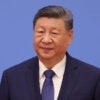If competition is healthy—most conservatives believe it is—the challenge presented by China and other nations in the field of public diplomacy ought to be a wakeup call to the U.S. government. While the United States invented the concept of public diplomacy, other contenders for international leadership are investing heavily in this branch of “soft power,” which focuses on promoting information, ideas, and values. As Washington awaits the results of the Obama Administration’s Quadrennial Development and Diplomacy Review (QDDR), which is far behind schedule, it is clear that leadership and strategic focus are needed to meet rising global “soft power” challenges.
Case in point: China. According to China’s Global Times (a government funded English language publication), leaders in Beijing are stepping up their public diplomacy efforts. This news comes after China announced last year an almost $7 billion global media campaign. At a meeting in Beijing, government leaders and scholars agreed that more needed to be done to further a positive the impression internationally of China’s “peaceful intentions” as a global player.
As the paper reported, “Having public diplomacy is like playing a football match. Playing a game is good even when you don’t care about winning or losing. One gets the chance to present his side and allow others to feel his existence. But one will definitely lose if he doesn’t play at all,’ said Fu Ying, the vice foreign minister.”
The conference even invoked the example of the United States as the first nation to engage in public diplomacy. Zhao Qizheng, head of the foreign affairs committee in the Chinese People’s Political Consultative Conference, pointed to the example of Voice of America as the earliest example of American public diplomacy, “which illustrated American spirit and helped the world know, trust and learn from the U.S.”
It is, therefore, amazing and disturbing to find that China has now, in certain areas of international broadcasting, overtaken the United States. While strategic decisions have been made here in Washington to reduce the amount of global short-wave broadcasting produced by the U.S. government in favor of TV and Internet, China has been moving full speed ahead. According to the World Radio TV Handbook, China Radio International now broadcasts on short-wave in 45 languages, compared to Voice of America’s 32, and does so on 284 frequencies, compared to Voice of America’s 200 frequencies. And most mind-blowing of all is the fact that China Radio International carries more English language broadcast hours than Voice of America.
The problem facing the Beijing is that their product—authoritarianism with a capitalist economic overlay—is a much harder sell than genuine democracy and free markets. U.S. policy makers should not forget that this remains the true American advantage as we engage the competition.
































2 Replies to “China Takes a Page from U.S. Playbook”